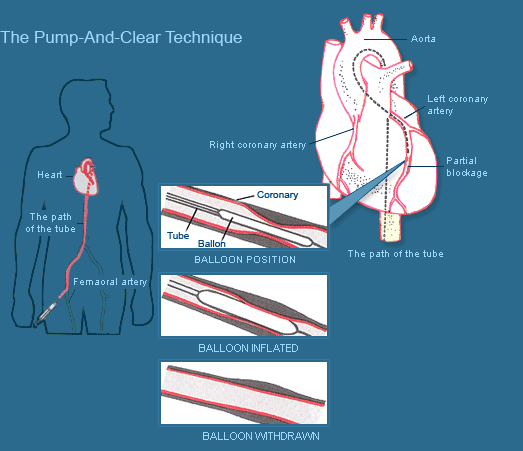|
What is Percutaneous Transluminal Coronary Angioplasty (PTCA)?
Percutaneous Transluminal Coronary Angioplasty (PTCA) is a medical procedure in which a balloon is used to open up narrowed or blocked blood vessels of the heart (coronary arteries).
Fat and cholesterol can accumulate on the inside lining of arteries, forming deposits called plaques. As the plaque accumulates, these arteries will get narrower or blocked (atherosclerosis). Precious blood supply to the heart will be threatened.
If the blockage is not too severe, a balloon catheter may be used to open the heart artery as an alternative to open heart surgery. The catheter is a small, hollow, flexible tube that has a balloon near the end of it.
Occasionally, blood thinning medicine is also given to prevent formation of a blood clot. In almost all cases, a device called a stent is also placed at the site of narrowing or blockage in order to keep the artery open.

| A tube tipped by a tiny ballon is inserted into the femoral artery at the groin until it reaches the coronary artery in the heart where the partial blockage occurs. |
The balloon is inflated a few times. At the point of inflation it is held for a duration of half a minute to two minutes. This clears the blockage after which the tubes is withdrawn. |
|